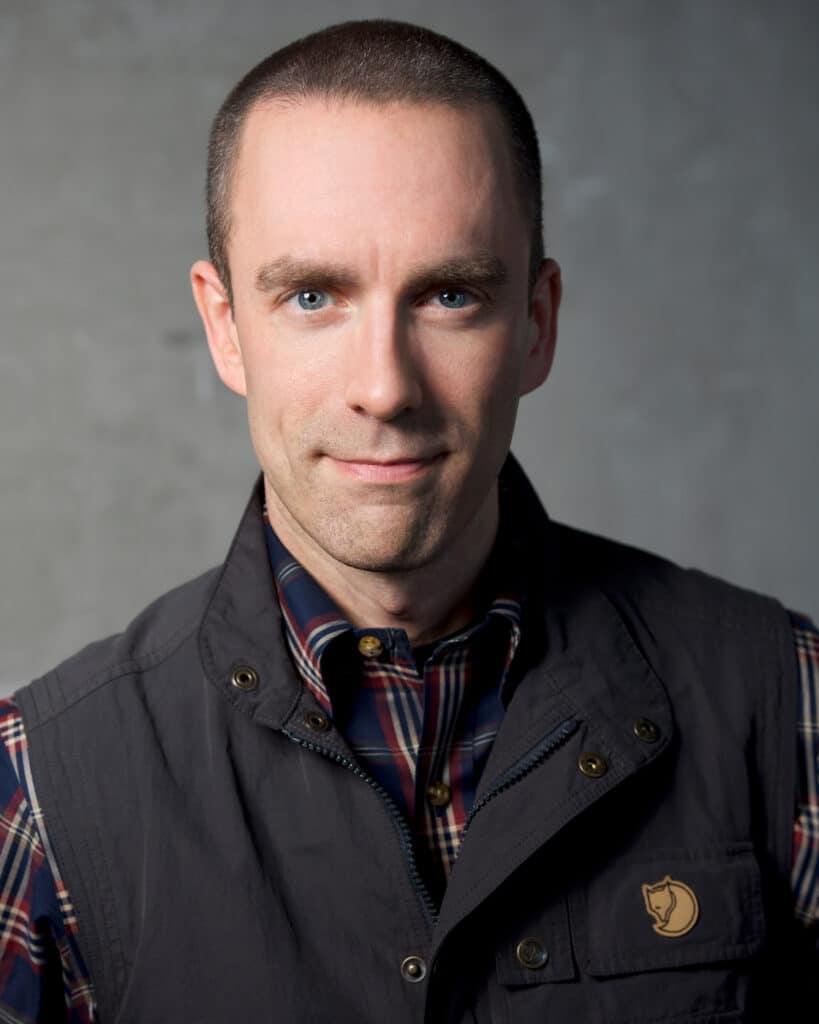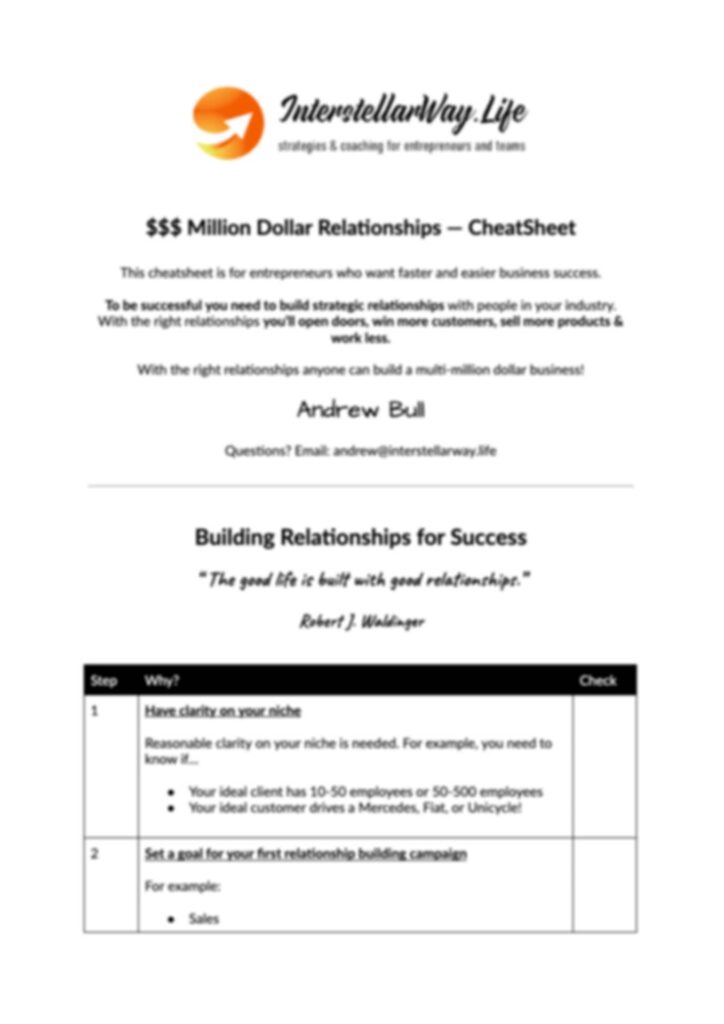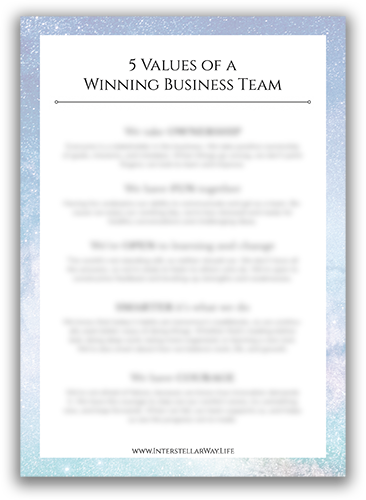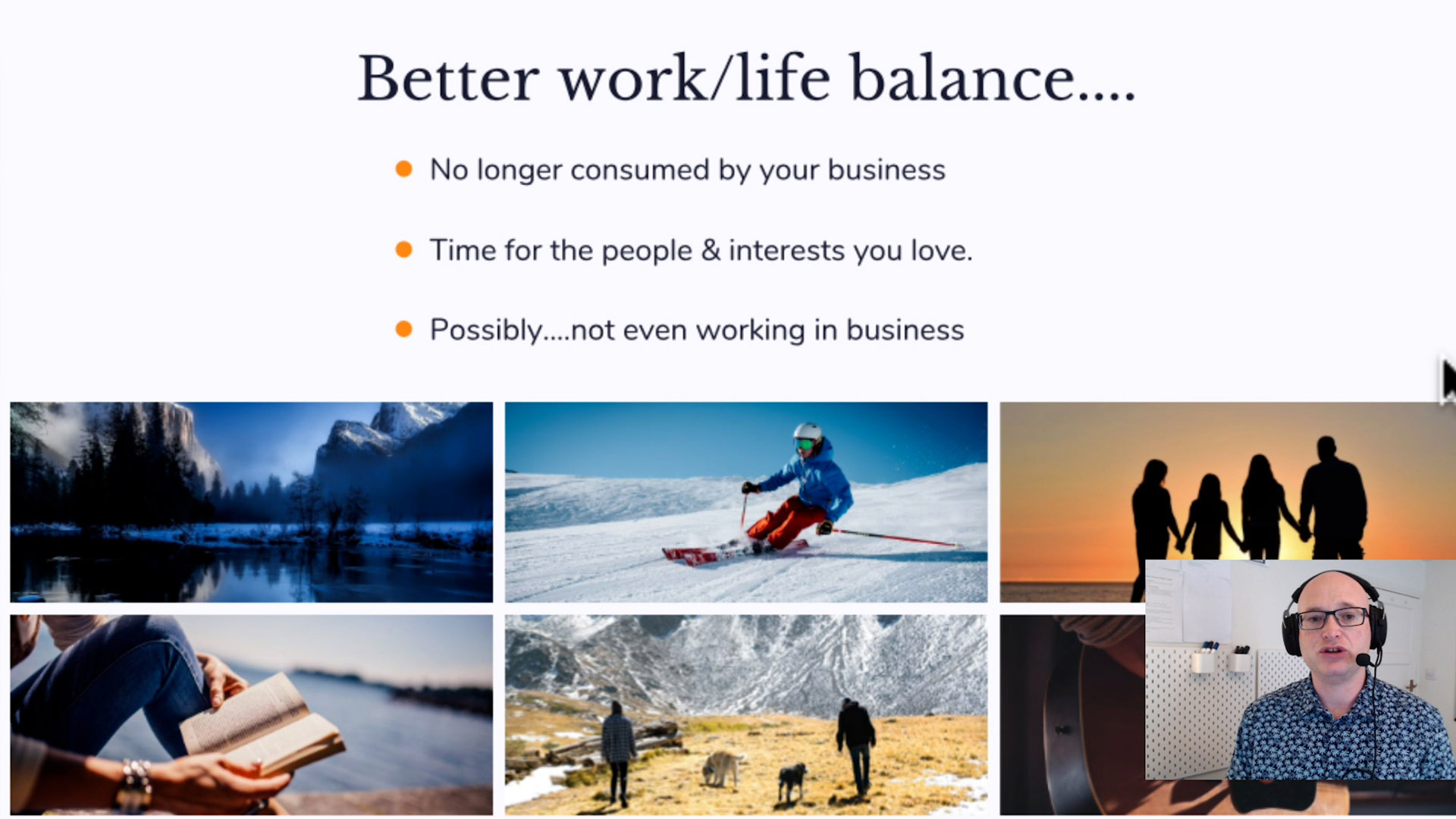Interstellar Business Show
Podcast for Technology CEOs and their teams.
It's time to grow your mind, elevate performance, and own your future 🚀

Interstellar Business Show
Episode: 0023
Funny Leadership: Jason Voiovich on leveraging humour in your business
Featuring....

Episode Introduction
This week’s guest: Jason Voiovich, Author of “Marketer in Chief: How Each President Sold the American Idea”.
Jason is also a fractional CMO, co-founder of Agent Zero: Mission UX and co-founder of Voyageur U.
In today’s episode, we’ll look at
- How leaders can use humour effectively
- The big advertising secret that is costing companies lots on money
- How to de-risk your business by making smarter choices… hint it’s time to think like a Stockbroker.
Please make sure you subscribe and follow us wherever you’re listening today. So you never miss an episode again.
Episode notes & resources
More about Jason Voiovich, Author of “Marketer in Chief: How Each President Sold the American Idea”
Buy the paperback, eBook, or Audiobook: https://marketerinchief.com/ (links to Amazon and other global retailers)
Personal website and blog (where you’ll probably learn about the next book): https://jasontvoiovich.com/
Connect with me on LinkedIn: https://www.linkedin.com/in/jasonvoiovich/
Love this podcast episode? Please leave a review here
Listen to more episodes here: Interstellar.Show
Get Andrew’s free Resources for Tech companies with teams → https://bit.ly/2Ygyoij
Join Andrew’s Interstellar Community → https://interstellarway.life/sign-up-for-newsletter/
Transcript
Please note, this transcription is autogenerated, so there may be errors.
[00:00:00] Andrew Bull: Have you ever worked for a leader who thinks they’re funny and they’re not. Terrible humor can be an awful thing to bear. It’s something we can tolerate when it’s our brothers, our fathers, or our sisters. But when it’s our coworkers or leaders and the humor just isn’t funny or is plain offensive, it can make everyone’s working day harder.
But humor, isn’t always bad news. In fact, humor can be a powerful tool for a leader. And throughout history, many successful leaders have used it to great effect. In today’s episode, you’ll learn why and how you can become a humorous and powerful leader.
And we’ll give you the actionable steps for doing just that. Plus we’ll talk about the big, dirty secret of the online advertising industry. And lastly, we’ll introduce you to a strategy.
That will help you. De-risk your business future. And in these uncertain times, we all need to be doing that. Now, before we get started and meet our guest, please make sure you subscribe and follow us wherever you’re listening today. So you never miss an episode again.
Today, I’m joined by Jason, who is an author. Please introduce yourself, Jason.
[00:01:44] Jason Voiovich: Hi, Andrew. I am Jason Voinovich. I’m the author of marketer in chief, how each president sold the American idea. I’m also a fractional chief marketing officer and entrepreneur of multiple businesses.
[00:01:58] Andrew Bull: Wow. Let’s just quickly address that idea of the fractional chief marketing officer. What does that actually mean?
[00:02:05] Jason Voiovich: Fractional CMOs, like a fractional chief financial officers or fractional it leaders for instance, are leaders who step into organizations, usually smaller and medium sized business. Who don’t need a full-time COO. They need That leadership ability for their team and to drive their strategy forward, but they don’t need a 40 hour a week full-time person.
They need someone four hours a week, eight hours a week. And that gives them the kind of flexibility they need at the price point they need yet also getting the kind of leadership and energy that are going to drive their business forward.
[00:02:46] Andrew Bull: That makes sense. I can see how that would be valuable for a lot of CEOs, let’s move on to the first part of the show, which is called
In this part of the show, our guest shares a secret or a story that no one knows about them. Jason, what is it that nobody knows about you?
[00:03:15] Jason Voiovich: The biggest thing that people don’t know about me is I am a Lego nerd. I am absolutely a Lego nerd. I have the, this on my desk. This is a Lego Sopwith camel. It actually works the little control surfaces in here. All work. I have Lego Voltron or from the 1980s and 1990s, the Voltron robot. It was five lion robots that came together form one big super robot.
I have that behind me, and I really, really, really, really want that Titanic Lego set. I know it would take me two to three days to build, but that’s when I get up in the morning and I think I just want to play today. I play with Legos.
[00:04:02] Andrew Bull: Yeah, I love Lego and I play it with my son. And probably if I had time, I would also play a bit by myself as well. But I think Lego is a really important creative tool, which encourages people to be artistic and try stuff out and to be innovative. So I think it’s a great thing to use. Later in the show, we’re going to be talking a bit more about innovation.
I’ve just got one follow-up question about the Titanic Lego set. If you had Jack and Rose on a raft made of Lego, would they both go to the same side or would they use their brains? And like one would be either the side of the raft.
[00:04:40] Jason Voiovich: That’s funny. I saw that movie and even at the time I was a lot younger. And I remember seeing that, I said why couldn’t they share that raft? There’s wood floating everywhere. Why doesn’t Jack find another piece of wood and kind of lash it together?
[00:04:53] Andrew Bull: let’s move forward into the next section of the show, which is called
jason, what is the big idea that you want to share with our tech CEOs and their teams today?
[00:05:09] Jason Voiovich: The idea I want to share is all about being funny. It’s all about humor And how to use humor strategically in your business, not just with your marketing or with your communications, but also internally with your team. It’s so powerful. It’s so natural yet. It’s so easy to get wrong. And that’s what I want to share.
Some tips from not only from our history Abraham Lincoln is a great example. We’ll talk about him, but how do we use humor strategically to improve our working relationships and improve our marketing and communications?
[00:05:49] Andrew Bull: why do you think people sometimes are reluctant to use humor within their business?
[00:05:55] Jason Voiovich: I think there are a couple of reasons. Andrew, the first one is humor is so easy to get wrong. How many times have our human resources departments warned us? That jokes are one of the best ways to get yourself into a lot of trouble and even jokes that are quote unquote well-meaning. So we’re a little afraid to use humor because we might get it wrong and it could get us into trouble.
That’s one big reason. The other big reason is we are afraid. We think that humor is something that you’re either born funny, or you are not funny that it’s ingrained that it’s not something that can be taught and honed and improved upon. Oh, that’s just wrong as well. Both of those things are wrong.
It just a matter of how do we break through that fear. And actually build skills that allow us to be funny in a constructive way.
[00:06:50] Andrew Bull: And I suppose part of the problem is that the humor line is always moving, right? The things that were acceptable to say even five years ago, probably not acceptable to say. Today. So perhaps there’s an element of what we say now, the stories we share being burned into stone and coming back to home to us through the ghosts of Twitter.
And so on in years to come, do you think there’s a mindset for helping us overcome that problem of the humorous past coming back to haunt us?
[00:07:26] Jason Voiovich: Absolutely. And how many times have you seen something that someone said 3, 5, 6, 7 years ago, a tweet being resurrected. That was funny at the time. And everyone laughed at the time and no one’s laughing now some simple rules will help us. And I think the biggest difference that will help make sure that something is sustainably funny over time is the difference between wit and humor.
Hey, and there’s an important distinction between those two things. People who are witty laugh at other people, someone is the butt of the joke. Someone is being taken down a peg, whether That’s you’re punching down or you’re punching up, it doesn’t really matter. There’s someone who is at the receiving end of the joke.
Someone laughs and feels good, and the other person feels bad and is on the receiving end of an attack, even though it’s funny humor laughs with everyone. Humor laughs. At situations, humor, laps at things that are common to all of us and tend to be sustainably funny over time. One example of that, if we take a look at, comedians, for instance, in which comedians tend to have staying power, it’s the ones that are observational.
The ones that look at situations in life that are common to all of us. People like Jerry Seinfeld, people like Jim Gaffigan. Those are the types of people. And on the across the pond, I’m in the United States, you’re in the UK. You’ve got some great comedians there too that are observational comedians.
Contrast that with people, such as a John Stewart or a John Oliver on our side of the pond here, where they are making others, the butt of their jokes. Now they’re funny. They’re absolutely funny. But someone on the other end of that, isn’t going to think that’s that funny? And that’s really the test you give yourself is somewhat on the receiving end of that joke that if you told them that joke, they’d be the butt or is the situation, the butt of the joke.
And if you can make that distinction, you’ll be funny, not witty.
[00:09:39] Andrew Bull: Jason sent through a copy of his new book before the show, which I’ve had a look at and it’s a great book and I suggest you go and check it out@hiswebsitemarketerinchief.com that you can get a copy. There is that right, Jason?
[00:09:55] Jason Voiovich: Absolutely right at marketer in chief, you can go to Amazon or Barnes and Noble, all of the places globally that you might want to buy the book it’s available everywhere.
[00:10:05] Andrew Bull: So Jason Connie sent me his book and I was having to look through it and it features all the American presidents well or a selection of them, and relate specific points to do with marketing and promotion and innovations do of each of these presidents. But one of them that really stuck out for me was Abraham Lincoln.
And it relates to this point about humor and wit and getting it right and wrong. And there was a particular story where Abraham Lincoln was on stage at some rally or event, and he decides to rip into his opponent and it has a profound effect on Abraham Lincoln and actually changes his approach to humor.
And rather than me try and explain this story to you, I’d rather Jason does this. Jason, can you tell the story and explain how it changed Abraham’s approach to humor.
[00:11:00] Jason Voiovich: I think it’s a fantastic story. And it’s so instructive to how we approach humor. Basically, the story was this in the 1850s in the United States and many parts of the world as well, politics was an in-person sport. You didn’t have TV, you certainly had newspapers, but how most politics was conducted was basically out in fields.
People would actually get soap by. And platforms and they would stand on top of it. Now, Abraham Lincoln was six foot four. So he ordinarily had this amazing advantage over people with just as height. He was in debate with another candidate for the same office. And Abraham Lincoln was one of the best mimics that co the comedic world has ever produced people.
People don’t know how funny Abraham Lincoln really was. All his contemporaries knew that, but most people now don’t think of him that way. What Abraham Lincoln did is after the his opponent was done speaking, he mimicked his voice. He mimicked his mannerisms and played it up. And it was so funny.
The crowd was just going nuts. They were, it was so funny. He was clearly had them in the Palm of his hand and he sat down. He noticed when he stepped down from the podium, he looked at the man that he was, lampooning in there and the guy was crying.
He was just, he was, his head was in his hands and everyone was laughing at him. And Abraham Lincoln was such an empathetic person. He saw it and it embarrassed him for the rest of his life. Whenever anyone would bring up that story of how he just skewered that guy. He just couldn’t, it just, it hurt him personally because he knew the kind of power he had to really just rip into somebody.
And he realized that, although, yep. He had the crowd, they were all, it was all in good fun. It certainly wasn’t in good fun to that person. And frankly, when that person gets elected to the legislature and is in Congress, How much do you think that person’s going to want to work with Abraham Lincoln when he needs that person to get something done, those things come back to.
hurt you later.
It is very difficult to wind that back. He realized it, it embarrassed him and it completely changed kind of his wit into humor. And that made the whole difference for him.
[00:13:33] Andrew Bull: I think that’s such a brilliant tale and so well told as well, Jason and I think it’s important that we don’t try and split people. We try and bring people together as well. And I think you’re right. Humor. Overweight can do that. And I think if you’re the kind of leader who has to divide your team in order to tell a joke, then you’re probably not going about it the right way.
So let’s talk a little bit more about the book. And once we’ve spoken about the book, I want to come back and give people some easy steps for how they can get started with humor the right way, not so that they make their team collapse into a ball of tears and lie on the floor defeated. No, we don’t want that.
We want them to have feel better about themselves and bring everyone together. Yeah, we’ll get, we’ll go into that in a minute. In the meantime, we just want to talk about Jason’s book for a moment.
You say the United States of America itself is an innovation. What do you mean by that?
[00:14:36] Jason Voiovich: That’s right. We don’t tend to think of the United States of America that way. Now we don’t tend to think of it as something new or something different because we’ve lived with it for quite a long time. But in the 1770s, that was a big idea. The idea that a government derived its sole authority from the consent of the governed, that it was a it was laws, not.
That would determine that was very different at the time. The competitors for that innovation in Europe were monarchies of some form or another military dictatorships, bureaucracies, tribal associations, all manner of different things that the United States would be an experiment. People call it here, the American experiment.
And that’s really what it was at the time. It was a totally new thing. So when we think about the United States in the lens of it, innovation and idea, we can think about it differently. My background is in product development and innovation and launching new products. So for me, that was a natural way to look at it.
How did that innovation evolve over time and how did each president need to respond to that? The simple example I, use is. Tim cook. The CEO of apple has a very different challenge introducing the 13th, or, the iPhone 13 than Steve jobs did introducing the first iPhone and taking the stage for the first time.
Although there it’s the same company, although it’s still the CEO, it’s a very different challenge to launch an innovation than to address a mature innovation over time. And that story arc helped me create a story arc to talk about the presidents and give it something that wasn’t okay, there’s the revolutionary era.
And then the civil war era, and then the robber Baron era, and then the world wars and then the nuclear age, those are fine. But we all learned those in American history class on this side of the pond. I wanted to give people something a little bit different, something that I think most business people certainly marketing folks.
But anyone who just loves products and loves new things will understand that methodology, that storyline maybe a little bit easier, or maybe a little it’ll seem a little bit more natural. That’s what I wanted to do.
[00:17:08] Andrew Bull: I like the concept. And instead of creating a, an idea of looking at one product as a way of looking at concept, You’ve used America itself as the product and as innovation as a way of getting some ideas out there. And unlike like how the book starts with Benjamin Franklin, talking about how he was an advertising and marketing genius, and the fact that he had those skills, which helped him flog American independence to the French in a way so that they would back the war against the British.
[00:17:44] Jason Voiovich: Benjamin Franklin created this kind of archetype for what being an American really was. He created the American brand, this kind of rugged, resourceful individual list, a sort of persona. He embodied it . There are famous stories where he went to the French court and he would wear rugged clothes.
He would wear, sensible shoes. He wore a coonskin hat. He didn’t wear a wig. He didn’t wear makeup. All of these things when he would meet French Nobel men of that era, they were the guardians of French high culture. What he was, what would made him a brilliant marketer was he realized he didn’t try to copy that style.
He didn’t try to go and engraved C8 himself that way. He knew that in order to create. A brand that brand needed to be different. So he went and he dressed differently. He spoke differently. He did speak French, but he spoke it purposefully poorly. No, he didn’t want to be, he wasn’t a suck up. He was there to get their help, but he was different.
And I just find his story really fascinating. It was a real inspiration for the book because he, his way of getting the French help was about creating a brand that every president thereafter was going to have to deal with. They were going to have to make sure to maintain this image in this brand, because it wasn’t George Washington who created that brand.
It was Benjamin Franklin and every president thereafter, his inherited that job.
[00:19:25] Andrew Bull: so do you think that’s the first selling of blueprint that we’ve ever seen from Benjamin Franklin?
[00:19:31] Jason Voiovich: That’s right. That was exactly what. He had a beta version of the United States. He had this idea, there was a declaration of independence, which was essentially the pitch deck for the United States. He went to the French and said, I’m looking for your money and your resources.
And I need a strategic investor, not just a financial investor. It wasn’t just the God of the Netherlands who provided some of the financing. He needed the French military. So just in the same way, you might need a strategic investor today who is going to bring in different tech resources and coders and other development people Benjamin Franklin didn’t just need money.
He needed ships, he needed soldiers. And so it’s, when you think about it in terms of financial, strategic investment, many CEOs that I talk to say, oh, This is the first time I’ve get it, what Benjamin Franklin was trying to do, because it’s still the thing we try to do today. It’s the same thing.
And that’s what I love about history. Andrew is that when we learn about the past and we’re actively learning, we’re not just reading, we’re really trying to apply it to our lives today. We find out that the problems we face today, it’s not like we know what the future is going to be, but we can learn.
We’re not just going on our own experience on our own gut. There could be dozens of other leaders who have faced that challenge before. How did they do it? And what did they do? What did they not do? What were their experiences? It may not make the decision for us, but I’d rather go in with 10 examples than my own.
I’m not smart enough to predict the future. I don’t think anybody is. We need help.
[00:21:17] Andrew Bull: I’d love how there’s all those different presidents from all different areas in the United States history that people can dig into the book and take valuable lessons from.
So let’s jump back to Abraham Lincoln and focus on humor.
How can CEOs take their first easy steps with humor?.
[00:21:39] Jason Voiovich: The first step that’s not scary at all is simply observing other comedians and understanding that difference between wit and humor. Now, my suggestion isn’t to watch them on Netflix or to do any of that, but actually go to a comedy club. What kind of a dirty bar where you can actually get up and touch the comedian, go to one where they’ve got a headliner and they’ve got other comedians who are learning their craft along the way, who are going to go first and watch the difference between someone who’s learning.
And someone who is more of a master of their craft and start to observe, look at the difference between wit and humor. What do people laugh at? What do they not laugh at? And you’ll start to get a sense for what’s funny and what’s witty. That’s the number one thing you could do and you don’t have to put yourself out there yet at all.
[00:22:34] Andrew Bull: I love that. That’s a great suggestion. And I suppose one good thing to observe. There might be any of the jokes turning any of the audience member into a disempowered victim, the kind of thing that you don’t want to do to your team.
[00:22:49] Jason Voiovich: The whole thing is just being observant when you’re in, it’s going to be funny and if it’s any good, it’s going to be funny and you’re going to get wrapped up in it. But as a CEO, one of those leadership skills is being able to observe the world around you carefully. So being able to seat yourself off to the edge so that you can look at the audience as Well, as the comedian.
If you start to see that someone’s the butt of the joke, you’ll start to get an idea of like, where did it turn from? Everybody’s laughing to, everybody’s laughing at a particular person and you’ll start to get a sense for where the difference is. And heck go into a comedy club is fun.
So it’s a good way, not just to observe, but just have some fun too.
I think most of us need a little bit more fun in our lives.
[00:23:36] Andrew Bull: Fun is such an important quality to have obviously in a comedy store or a stand up venue, but also in your team. Cause that’s. Helps make healthy conversations happen. It’s that seed bed for innovation. So if you’re essentially turning your team into a standup night where some of the people aren’t having fun, they’re not going to be ready to innovate and become, high productive team members.
So I think there’s a brilliant lesson to be learned there. So Jason you’ve got your book, what’s it called again?
[00:24:08] Jason Voiovich: Marketer in chief, how each president sold the American idea.
[00:24:12] Andrew Bull: And that explains Abraham Lincoln’s ideas on humor. So go and check that book out. Let’s move on to the next topic in the show, which is called
This is where our guests shares a performance hack or a I did that will improve the performance of your team or your business.
Now, before the show, I sat and chat with Jason and we talked about pay-per-click and online advertising, and we were discussing that there’s some big issues in the marketplace right now, which affect tech companies like yours, that you need to be aware of.
And in fact, there’s one big problem. That’s really not talked about much and it’s just assumed maybe not to exist. What is this problem? That’s being glossed over Jason.
[00:25:02] Jason Voiovich: the big idea, the big, dirty secret that no one is talking about in advertising and marketing right now is. Up to 80% of all digital marketing is fraudulent. Whether That’s click fraud, whether that’s bots on social media, about 80% of the money you are shoveling out, the door is completely being wasted.
It is not going to reach your audience. So when I think about that, it is a terrifying amount of money that is going out the door. Marketing is one of the biggest expenses on many tech companies, P and L’s, and 80% of it is actually destroying value..
[00:25:47] Andrew Bull: That’s crazy. Isn’t it. If you were literally just going to take a chunk of money out of your business and pour out the window, people would shout at you and go stop, Jason. Don’t do that. Stop pouring your money out of the window. It’s not going anywhere, but because it’s digital and it’s in a spreadsheet and we see some numbers, like views of videos or clicks or likes or something like this.
We’re like, oh yeah, we’re getting some kind of value. It’s growing brand awareness or having some kind of impact. But what we don’t realize is a lot of those numbers are maybe meaningless.
What can we do about it, Jason? What can we do about this meaningless spending of our precious advertising and marketing budget?
[00:26:32] Jason Voiovich: I’m going to suggest something very radical. And it’s the same thing that your CFO would tell you if you had a problem somewhere in the middle. You had zero base budget. What that means is you wipe out the budget. There is no 5% more than last year or 10% more, or what objectives do you want to achieve?
None of that, it is zero. The marketing budget?
is zero next year. And every piece of incremental spend needs to have a direct attribution and tied back to revenue. I know that a lot of my colleagues in marketing and sales will bristle at the notion that, oh, there’s, that we need to generate awareness.
We need to do things that don’t have a tie back to revenue right away. What I’m telling you in digital marketing specifically, if you can’t tie that back to a conversion of sales, something that is a hard currency. You need to take a hard look, if you should be doing it and realizing that if you have investors, your investors should be asking hard questions on where all of this awareness money is going in all likelihood it’s being seen by bots and robots.
[00:27:45] Andrew Bull: That’s pretty scary, isn’t it? So yeah, people do really need to take action. I think that idea of going back to basics and stripping away and asking deep and sometimes hard questions about what we’re doing is a really worthwhile process to go through. Also, Jason’s got a blog posts about this on his website.
And what I’m going to do is drop that in the show notes. So if you had to interstellar.show, which is the website for this podcast, I’ll drop that link for his blog posts and you can read it and see for yourself. How big this crisis in online advertising really is. I just don’t think it’s something we can ignore.
It’s something we really need to take action with. I would say that as well as. Quantitative results and actually seeing, money coming back through the door with our ad spend, we also should think about things in a qualitative way as well. Are we building relationships with people?
So maybe it’s not just about numbers coming back through, but are we, is our customer database increasing? And do we feel that we’re building more valuable relationships with people out on the market.
[00:28:56] Jason Voiovich: I think Andrew that many organizational leaders, especially tech CEOs tend to fall victim to this they’re data centric people. They’re folks that feel that. Okay. We can’t really evaluate the squishy stuff, but if there’s a hard number somewhere we can evaluate that money certainly is one.
And I, I advocate for that, but I think our focus on quantitative metrics has pulled us away from the important qualitative metrics. And you brought up an excellent one, which is relationships. What is the strength of the relationship we have with our customers? Now we can measure that in a lot of different ways, but it takes a fundamentally different way to think about that.
Not just how many times are they clicking on our email, but are they talking about us on social media, of their own volition? Is it something obvious? Are they talking about our product with their friends? Do we see them wearing our shirts? It’s things like that. Things that my dad who is in the advertising business, in the sixties and seventies, that’s how they would have measured it.
That’s how they would have looked at it. And I’m not saying that we need to go back to the 1960s and ignore all the technology that’s come since then. But I think there’s a bit of a pendulum swing that has to go back the other way, and we need to respect some of those fundamental strategies and some of the qualitative metrics that really make a difference in the strength of the relationship over time is going to be the strength of your business over time.
[00:30:29] Andrew Bull: And part of that is around valuing people. Isn’t it in a way, instead of valuing numbers.
[00:30:36] Jason Voiovich: It’s funny, when we think about the challenge of thinking about it just simply as a financial transaction is that we lose a little bit of a sight of who are the people that we’re interacting, how are their lives improving? What is that kind of user experience perspective?
What I’m heartened by. Is that the fastest growing field in tech right now is user experience. And I don’t think that’s a mistake. I don’t think that’s an artifact of something else. Five years ago, it was all about data scientists. Now it’s all about user experience professionals, and that is a, that’s a sign that over the course of time, that’s likely to get better.
We’re training people, how to ask those better questions.
[00:31:25] Andrew Bull: Yeah, that’s interesting to hear that. That change has been happening and how people are focusing more about what humans experience on websites and in the customer journey as well. So brilliant. So yeah, if you want to take action with this, then do look at your metrics and really question how much, when you look at your Facebook ads dashboard, or however you haven’t in your day in your organization, maybe you have a bespoke business dashboard start asking questions about what each of those metrics actually mean.
Does it really matter that a million people have come to your website? If it doesn’t actually add up to an end result? Have you got a final thought you want to share on this?
[00:32:08] Jason Voiovich: Yeah, I think this is going to be a series of tough conversations inside your organization. And they’re probably long overdue on what are we really doing? What, how do we really want to be finding and attracting and engaging with customers in a different way than trying to trick them to clicking on something or trying to get them to convert thinking about it for what problem are they trying to solve and how are you going to help them do that?
If you can do that if you can just ask different questions, you’re, that’s the only way to start getting different.
[00:32:45] Andrew Bull: Yeah, I think that you tap into a, an important idea that thinking about how you can deliver value to your customer, rather than looking all the time to how you can take the value out of the marketplace. I think that’s key. All right. Let’s move on to our next topic, which is called
So in this topic, our guest shares their thoughts on how you can achieve better work-life balance.
Some guests come on and they say, you can’t achieve work-life balance. It doesn’t exist. So everyone’s got their own unique view on it. And that’s what I think adds to the rich tapestry of this show as well. Now, Jason has told me that something important has changed his approach to life. And he says, it’s the power of choice.
What does that mean to you?
[00:33:38] Jason Voiovich: I think a lot of tech CEOs and I was in tech. I wasn’t the CEO. I was the chief customer officer, but similar experience in terms of a life, a professional life of constant busy-ness constant demands from investors, from employees, from customers. And my life was busy. It was even difficult to.
Take 15, 20 minutes away to listen to a podcast or just to breathe for a little while and go walk outside. What I started to do, though in that role was start to think about it differently that I’m going to make choices about what I pay attention to and that wasn’t everything. And it forced me to have sometimes very difficult and direct conversations with employees, with customers, with investors, about what I was going to focus on and what I was not going to focus on.
It’s difficult. You would think that when you tell an investor, listen, I know that you have this idea about a new strategy. You want me to think about, but you know what? We’re focused on employee engagement right now, and I’m trying to build a team. am focused on that and I am making a choice to focus on team development, right?
I’m not going to distract the team right now with your idea. I’ll capture it. We’ll put it on the back burner, but I’m not going to do it right now. And I thought, the first time I tried it, I thought I’m going to get told that. Yeah. Great. Do it anyway. Do them both do your employee engagement and team building and talk about this new idea that I’ve got, but really what was interesting Andrew was that, the investor at this time said, yeah, that totally makes sense.
Why don’t we revisit this? We’ll put it on our quarterly sheet and a couple months from now, we’ll talk about it again and we’ll see if it still makes sense. But yeah, I want you to stay focused on doing that. That’s the most important thing you’re doing and it was so empowering and granted, we had great investors that helped us do that, but in the end it gave me the power to say, I’m going to make choices about what I focus on and.
When you’re direct with people about that, my experiences, it gives them power to go and make their own choices and do their own things. And it’s not a cure all, but it’s a different way to think about things. That’s changed. My it’s changed my work.
[00:36:09] Andrew Bull: That’s great to hear. And I think where you put your attention. And focus really affects the results you get in life as well. We have an attention budget. We have an energy budget, and sometimes we’re not very conscious about how we spend these things. And then we wonder why don’t I have time to go to the gym.
Why don’t I have time to work on this big project? Why don’t I have time to do this? And they softened because we’re just spending our energy and attention, Willy nilly here, there, and everywhere. So I think you’re right. We do need to become more intentional about where we put our attention both inside and outside of work.
Do you find other people can sometimes be distracting their busy-ness? Can that be something that can impact you personally? And how have you managed to deal with that?
[00:37:05] Jason Voiovich: it’s certainly a challenge. It’s not easy. It gets easier over time. We’ve all have people in our either working for our companies or customers or whatever the case may be, where their busy-ness in, their urgency is infectious. It’s just, it’s all consuming and it’s all over the place. And, personally, one of the ways I address that is I have certain times in my day where I block off that I’m going to address their busy-ness.
I’m going to answer their questions. So if I know if I’ve got a particular person like that, who is going to throw those kinds of things at me and is in that busy state of mind, say, okay, Hey, every Wednesday I’ve got an hour blocked off on my calendar where I am going to address busy people. And I’m going to answer their questions.
And what’s magical about that is that it’s not all the time. And by the time you get back to say, Hey, Andrew, is that thing you needed me to think about? Is that still something you need? Can we talk about that? Very often busy people move on to different things and they either answered their own question, or it’s a thought that kind of goes in and out the head and it doesn’t need to be addressed.
There’s so much of busy-ness that just simply doesn’t need to be done. that little technique, that little hack saved me, because I discovered that more often than not, I didn’t need to address this busy-ness I just needed to let it go. But the trick is. There is about 20% in there that does need to be addressed and you need to be respectful for other people to actually have time on your calendar.
But what you’re doing is you’re choosing when you will address their needs. Not always when they need them addressed, you’re going to choose where you can put all of your focus on addressing their needs versus having it take you out of your productivity during their day..
[00:39:09] Andrew Bull: I think that’s such a great way of dealing with this challenge of having other people’s business interrupt you. I think people fall into this false belief that sometimes they need to just work on satisfying other people and trying to meet their demands and keep them happy.
But the reality is what ever you do. However quickly you respond and however you respond. There’s no guarantee that what you do will satisfy someone else. So I think we need to act in a way which is measured, grounded and reasonable for ourselves in terms of what we get done and not let other people’s busy-ness and like crazy ways infect us and stop us on our mission because if they do, then we don’t get to deliver all the value that we knew to other people. So I think that’s really powerful advice, Jason, and thanks for sharing that. Let’s move on now to our next part of the show, which is called
So Jason, how does stock portfolios change the way that CEOs need to plan for the unexpected in their business?
[00:40:41] Jason Voiovich: Here’s how I think about it. If you were investing your money, would you invest all your money in one? And the answer is obviously, no, that’s ridiculous. We all know that there’s a ton of risk, no matter how good that one stock is, no matter how much we love our home and we are investing money in our home, whatever one thing it is, we have a single point of failure.
If something were to go wrong we could lose all our money. We could lose everything. So no one does that anymore. At least anyone who’s smart. Doesn’t do that. Why do we do that then with our professional life? Why do we do that with our business portfolio? Why do we imagine that the future will be the one vision that we cast for it into the future?
That’s ridiculous. Over the past 18 to 24 months, we’ve had the COVID-19 pandemic. I hope that’s shown people that their ability to predict the future is suspect at best. But before that we had financial crisis, we’ve had wars, we’ve had natural disasters. Your ability to predict the future is so much poorer than you think it is.
The real question is what are you gonna do about it? And the portfolio is the way financial advisors have taught us to do that. You’ve got a balanced portfolio of bonds and stocks and other investments that are hedges against that. Why don’t we think about that with the future of our companies, with our product lines, even with our careers, why do we still invest in just one possible future when we can’t predict the future?
We’re ridiculous to think. So.
[00:42:27] Andrew Bull: Give me three quick, actionable steps that people could take, to start hedging against the future.
[00:42:34] Jason Voiovich: The number one thing people could do is just the mindset that the future is not predictable. You are not going to be able to predict the future. You are going to have to predict multiple possible futures. Okay. So thinking about what are the different scenarios that could play out for my company?
I’m the tech CEO, what are three possible scenarios that could happen in the future? Let’s think about how likely those scenarios are and how impactful they would be if they happen. Great. That’s number one, number two. How do you plan to be successful in each one of those scenarios? How do you make sure you’re taking steps now that if this happens, that happens or the other thing happens, you will be able to be successful, engage the team in that exercise.
Third thing actually put your money where your mouth. And allocate your investments accordingly. It doesn’t have to just be money. It can be time, attention, focus. All of those different things will help you make sure that you win no matter what happens. Now, you don’t need to plan for asteroids impacting the earth.
That’s a different sort of thing, but most organizations are only planning for the future they hope will happen. What if Google decides that they’re going to get into your business line, what’s going to happen then? You should have a plan for that. You should be investing in that path upfront and you’ll be in better shape.
At the very least, you’ll feel more confident that no matter what happens, we’re gonna be good..
[00:44:13] Andrew Bull: I love those steps. Thanks for sharing those, Jason. I think that’s fantastic food for thought for all of our leaders who are listening to the show. Let’s move into our last segment of the show, which is called
This is where you get the steps that you can take to put into action the advice and ideas that you’ve learned on today’s show.
First of all, Jason, what’s the big result that tech leaders can get. If they action, your big idea.
[00:44:44] Jason Voiovich: Here’s the thing survey after survey, after survey, tell us what employees want out of their leaders And that nine out of 10 executives believe that humor is important for career advancement and that 84% of people with a good sense of humor, do a better job. If you start to think about what are the most desirable characteristics in a leader, and as a leader, you’re always looking for, what’s going to attract and retain the best employees.
A sense of humor is either the number one or number two. It’s not the vision of your company or your background or where you went to college. It’s humor. Why? Because people can relate to you. People want to be around other people who are funny and who make them feel good that shouldn’t come as a big surprise, but it often does.
[00:45:37] Andrew Bull: And maybe also it’s not just about the fact that people who can tell jokes are humorous. It’s the facts that it’s the fact that they actually care and pay attention to their audience as well, and empathize with the people who are listening or who have stuff to tell them.
[00:45:53] Jason Voiovich: Exactly, humor is an empathetic sort of thing. I think when you think about what makes people funny. It’s this interaction with the audience. Humor is not something that’s inside your head. Humor is a shared experience. So there’s a presenter and an audience, and there’s this kind of feedback loop going on.
Funny, only exists when that feedback loop appears. And in order to be funny, you need to understand what your audience will find funny. What situations will they find humorous, in that process of understanding you build a common ground that you can build on later to do really anything, to innovate, that’s the secret. You need people to have that kind of emotional bond with each other. Then you could do it.
[00:46:43] Andrew Bull: Awesome. So what big takeaways do you want tech leaders to remember about your big idea?
[00:46:49] Jason Voiovich: Three things. Number one, be funny. Don’t be witty. Big difference. Number two, if you need to laugh at somebody, laugh at yourself. First self-deprecate is always a winning strategy. Number three humor is teachable. You can go learn it. And the best way to learn it is through stand-up comedy.
[00:47:13] Andrew Bull: Awesome. Jason, I had a real blast having you on the show. Where can people go and find out about your book again and learn more about you.
[00:47:21] Jason Voiovich: The first place they should go is marketerinchief.com. There to get the book. You don’t just learn from me. You learn from 45 other good examples of how to take action in your own life right away. And that could say great way to get to the next level in your business.
[00:47:39] Andrew Bull: Thanks for coming on the show today, Jason.
[00:47:42] Jason Voiovich: You’re welcome. Thank you for having me, Andrew. I enjoyed it.
[00:47:47] Andrew Bull: I had a great time chatting with Jason. It made me think deeply about the role of humor in leadership. I’ll be honest. I don’t think humor is an essential trait for every leader. I’m sure there are plenty of successful leaders who flourish without being funny. However I drop a few more in the right place can lighten the mood. It can bring people together and add a touch of humanity to our workplaces.
Indeed. I know some leaders who can’t get onstage and can’t give powerful speeches, but have a natural ability to bring their team together and have fun. And there’s a lot to be said for that. My biggest takeaway from today’s episode. Is that being funny and communicating well with your team requires a solid foundation of understanding and empathy.
Leaders who invest in listening and understanding their team members. Get that solid foundation. What’s more. Better listening and understanding increases trust, confidence, and motivation. And that’s why I’m making effective listening. My first step towards becoming a funny. And powerful leader. And I think you should too. Now if you haven’t already done so hit that subscribe or follow button wherever you’re listening today. And all I’ve got left to say is thanks for being here. Have courage own your future. Take action.







